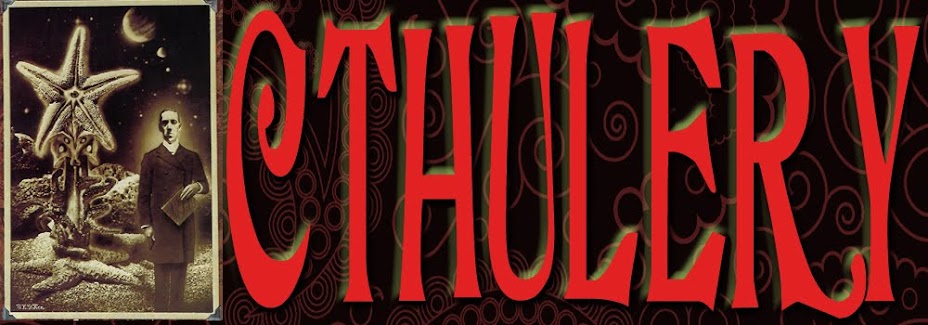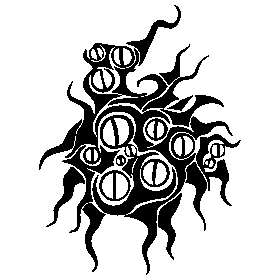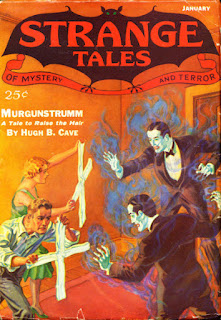by August Derleth
originally published Weird Tales, September 1948
Dan Harrop moves into the house of his cousin, Abel Harrop, a cranky recluse who has disappeared, Merie Celste-like, without a trace. Dan feels the local constabulary have done a poor job investigating, and so intends to solve the mystery himself. He finds the house in good order, even a book lying open on a desk in Abel's study.
The house has no electricity, but it does have a party line, and soon UN finds himself listening in on conversations among the superstitious and ignorant locals, who seem fearful of Abel's return and past spooky events connected with him. As an additional problem, whippoorwills sing in the tress outside the house all friggin' night long. Loudly. And they seem to be unusually large. Then he receives an anonymous call telling him to scram. He also listens in on more conversations, including about the birds, who, the local women seem to think, are trying to catch someone. They see the birds as an omen of death. And maybe something worse.
Dan takes some time to look at the books Abel had collected, and they are the usual titles from The Cthulhu Mythos Book Club (get 6 titles now and just sacrifice 2 more innocent souls in the next 12 months!). He tries visiting the locals, who are mighty unfriendly. One of them talks of Abel being taken away by "Them from outside". When Dan is uncomprehending, the yokel tells him to forget the whole conversation and burn the books.
Dan takes a deep dive into the books and we get the Usual Derlethian Cthulhu Mythos Lecture. While trying to sleep, he begins to hear unearthly chanting mixed with the cries of the birds. He finds Abel's clothing in a chair, arranged in such a way that it looks as if Abel had been sucked out of them. The bird cries start to really get to him and he runs into the night with a club, swinging madly at the birds.
Cattle starts getting killed in the area, mutilated and drained of blood. Dan has strange dreams of alien lands and tentacled, shapeless beings who feast on one another's blood. Someone sets the house on fire. Dan learns a bit more about Them from outside, and their ability to possess people. The dreams and the chanting get worse. Dan is found over the body of a local girl he has just mutilated and killed. They arrest him and prepare to lock him up. Don't they realize he's one of the Chosen Ones?
Despite a somewhat disappointingly prosaic ending, this is a well-above-average Derleth Mythos tale. He avoids most (not all) of the clutzy cliches that mark so much of his Lovecraft-influenced work, and this story builds atmospherically quite well. The dream sequences are especially effective.
Part of what brings it down is that I read it (for the second time in ... 40 years or so) the day after reading "The House in the Valley", published five years later but basically a total rehash of this tale (and less effective) (similarly "The Sandwin Compact" is nearly a rewrite of "The Return of Hastur". Poor Aug really was shameless sometimes). One of my main concerns here is to review these tales as they stand, on their own merits, independent of context. So while this is no classic by any means, it is a decent Lovecraft-influenced horror story.


















